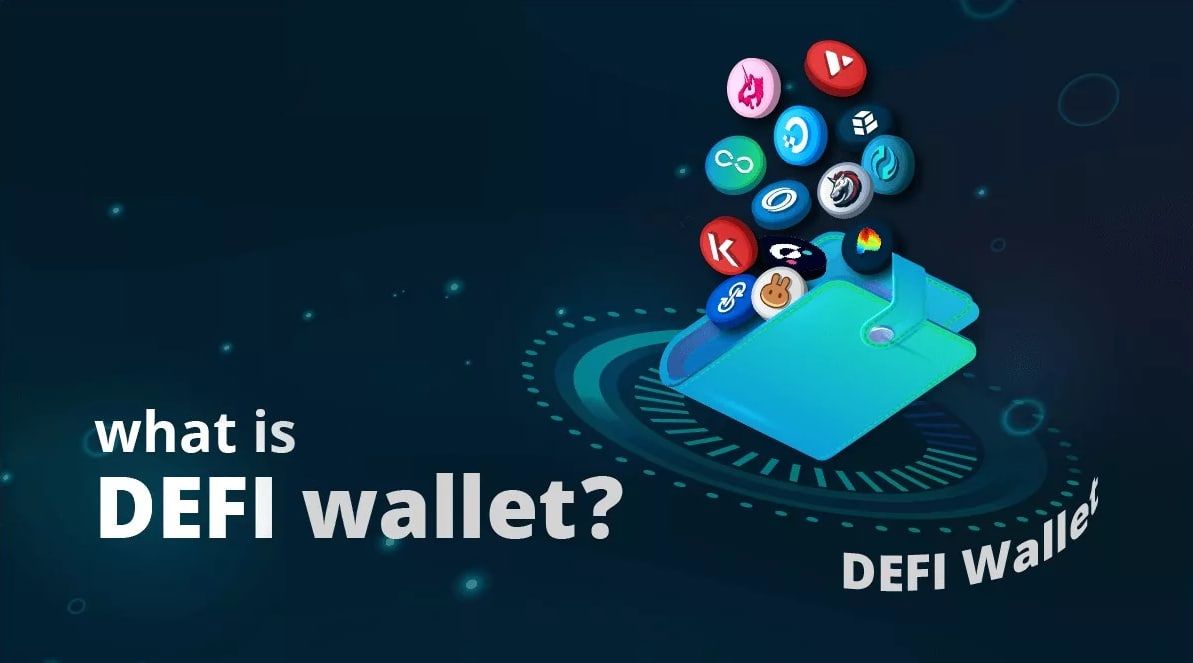Decentralized finance (DeFi) is transforming the way we handle digital assets, and at the core of this revolution is the DeFi wallet. But what is DeFi wallet, and why is it important for blockchain enthusiasts?
This article dives deep into the functionality and benefits of some of the most popular DeFi wallets, helping you understand why they are an essential tool in the world of blockchain.
1. What is DeFi Wallet Meaning?
DeFi wallets are cryptocurrency wallets that provide users with access to DeFi applications. Their primary function is to store cryptocurrencies such as BTC, ETH, FMC, PAYN,… and non-fungible tokens (NFTs).
So what is DeFi wallet in blockchain networks? It acts as the gateway to connect users with Web3 apps within the DeFi space, enables interaction with DeFi platforms such as decentralized exchanges (DEXs), lending protocols, or yield farming services… It’s needed to note that you cannot connect an exchange wallet to Web3, as these wallets do not grant users access to private keys.
Unlike traditional wallets managed by financial institutions, DeFi wallets stand out for offering self-custody, which means users maintain full control over their digital assets. This self-custody feature often prevents governments, companies, or any centralized entity from freezing or accessing the funds within the wallet.

2. How Does a DeFi Wallet Work?
Understanding “what is DeFi wallet” requires a look into how it operates. A DeFi wallet functions as a self-custodial wallet and provides access to your tokens on the blockchain through cryptographic keys, including both a public key and a private key.
- Public Key: This serves as your wallet’s address, similar to an email address. It allows others to send tokens to your wallet.
- Private Key (or Seed Phrase): When creating a DeFi wallet, users are provided with a unique private key that must be kept safe and confidential. This key acts as the password for accessing and controlling the wallet.
The functionality of DeFi wallets extends beyond simply storing cryptocurrencies. Users can connect their wallets to various DeFi platforms to perform actions such as trading tokens, staking, and borrowing assets. When interacting with these platforms, the wallet securely signs transactions using the private key, ensuring that the user is the only one authorized to approve the movement of funds. The key features of DeFi wallets including:
- Non-Custodial Nature: The user retains full control over their assets, as there is no centralized authority that can freeze or manage the funds.
- Support for Multiple Blockchains: Many DeFi wallets can support assets across different blockchain networks, such as Ethereum, BNB Chain, Polygon,…
- Integration with DeFi Protocols: DeFi wallets allow users to connect directly with DeFi applications like DEXs, lending protocols, and liquidity pools.
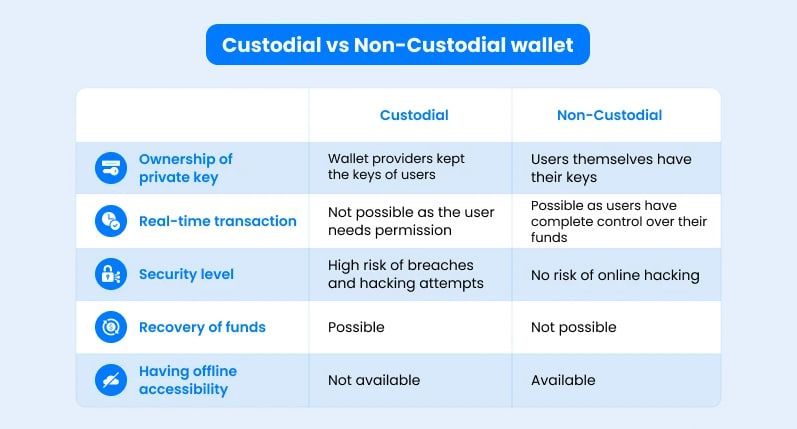
3. Is DeFi Wallet Safe?
The safety aspects are of great concern to many users when learning “what is DeFi wallet”. Compared to traditional custodial wallets (e-wallets), a DeFi wallet offers higher level of security and autonomy. However, its safety largely depends on the user’s practices and the wallet’s security features. These features including:
- Private Key Control: Because users have full control over their private keys, they are solely responsible for the security of their assets. Losing the private key means losing access to the funds permanently.
- Hardware Wallet Compatibility: Some DeFi wallets offer integration with hardware wallets, providing an extra layer of security by storing private keys offline.
- Seed Phrase Backup: DeFi wallets generate a seed phrase during setup, which can be used to recover the wallet if the device is lost or damaged. It is crucial to store this seed phrase in a secure location.
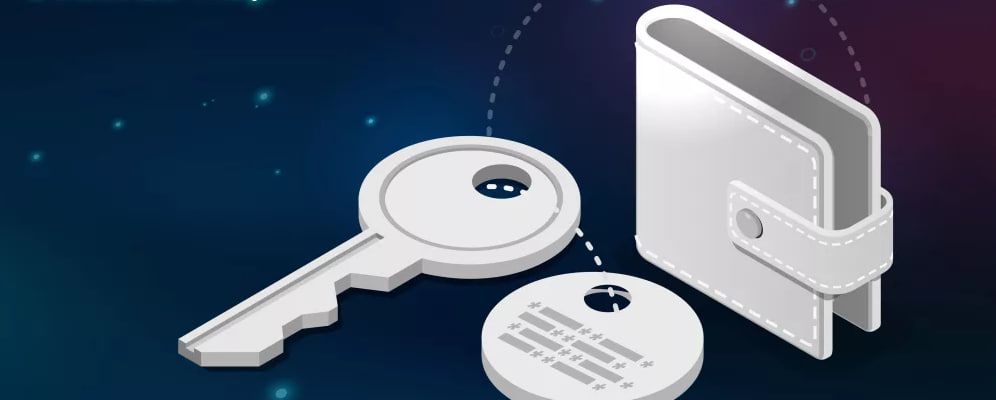
While DeFi wallets are considered secure and allow users full control, you should still implement good security measures to protect your assets from risks such as:
- Phishing Attacks: Users may fall victim to phishing attempts if they are tricked into providing their private keys or seed phrases to malicious sites. Always ensure you are on the correct platform.
- Smart Contract Vulnerabilities: Interacting with DeFi protocols can expose users to risks associated with smart contract exploits. Use well-known and audited DeFi platforms to minimize risks.
- Human Error: Since DeFi wallets are non-custodial, mistakes like sending assets to the wrong address are irreversible. Double-check addresses and transaction details before confirming.
4. Top 5 Crypto DeFi Wallets & Their Features
If you’re exploring decentralized finance, understanding what is DeFi wallet and its features can help you choose the right DeFi wallet that greatly enhances your experience. Different wallets come with unique features, making it important to select one that suits your needs.
Below are the top five popular DeFi wallets, each offering distinct advantages.
4.1. MetaMask
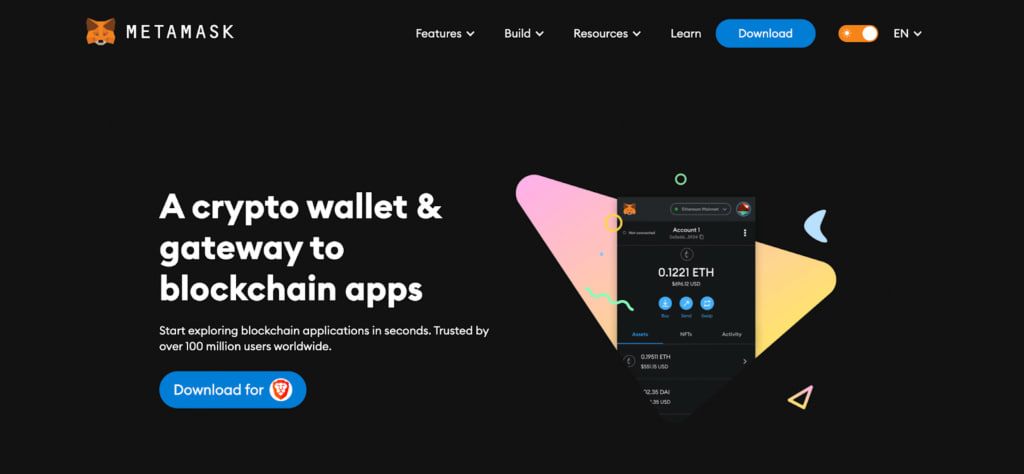
MetaMask is the most established DeFi wallet in the industry, founded in 2016 by ConsenSys, an Ethereum development company. Known for its widespread adoption and user-friendly interface, MetaMask supports Ethereum and all Ethereum Virtual Machine (EVM) compatible networks such as BNB Chain, Polygon, Avalanche, and others through its custom RPC feature.
MetaMask’s key features include:
- DApp Browser: Allows users to interact directly with decentralized applications.
- Buy and Sell Functions: Supported via third-party fiat gateways.
- Token Swap Functionality: Offers in-wallet token swapping with a 0.875% fee.
- NFT Collectibles Tab: Supports the storage and viewing of NFTs.
- Portfolio Tracker: Facilitates staking, bridging, and asset management via a web app.
- MetaMask Snaps: Third-party features that add custom functionalities to the wallet.
MetaMask is primarily used as a browser extension, but a mobile app is also available on iOS and Android. While widely trusted, the wallet has faced privacy concerns in the past due to updates to its policy that allowed collecting and potentially sharing users’ IP and wallet addresses.
| Wallet Name | MetaMask |
| Founded By | ConsenSys |
| Launched In | 2016 |
| Type | Software wallet |
| Supported Networks | Ethereum and all EVM chains |
| Platforms | Browser extension (Chrome, Firefox, Brave, Edge), Mobile (iOS, Android) |
| Standout Features | MetaMask is the most widely-supported DeFi wallet |
4.2. Coinbase Wallet
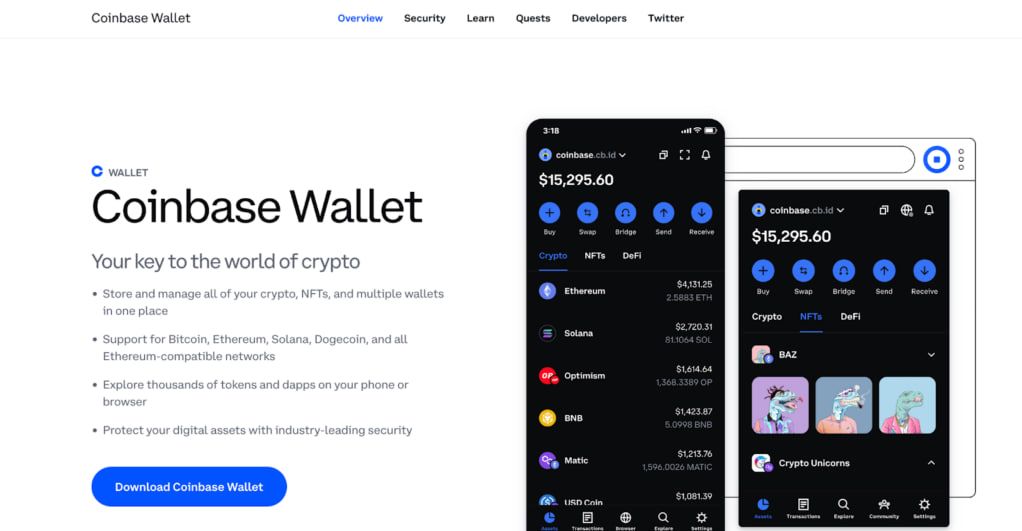
Launched by Coinbase in 2018, Coinbase Wallet is a non-custodial DeFi wallet that provides users with full control over their funds. It supports Ethereum, Solana, Dogecoin, and all EVM-compatible networks. While users don’t need a Coinbase account to use the wallet, linking to a Coinbase exchange account allows for easy transfers, which is also the only built-in fiat gateway for purchasing crypto within the wallet.
Coinbase Wallet’s standout features include:
- DApp Browser: Supports seamless interaction with decentralized applications.
- Fiat On/Off-Ramp: Facilitates crypto purchases via the Coinbase exchange.
- Token Swapping: Allows users to swap tokens across popular networks.
- Cross-Network Bridging: Supports bridges between major EVM networks.
- Encrypted P2P Messaging: Provides private messaging via the XMTP protocol.
- “Simple Mode”: Designed for beginners who are new to DeFi.
Available as both a browser extension and a mobile app, Coinbase Wallet’s combination of exchange integration and decentralized finance capabilities helps users better understand what is DeFi wallet and how it differs from traditional solutions.
| Wallet Name | Coinbase Wallet |
| Founded By | Coinbase |
| Launched In | 2018 |
| Type | Software wallet |
| Supported Networks | Ethereum, Solana, and all EVM chains |
| Platforms | Browser extension (Chrome, Brave), Mobile (iOS, Android) |
| Standout Features | Optional linking to Coinbase exchange account, encrypted messaging |
4.3. Trust Wallet
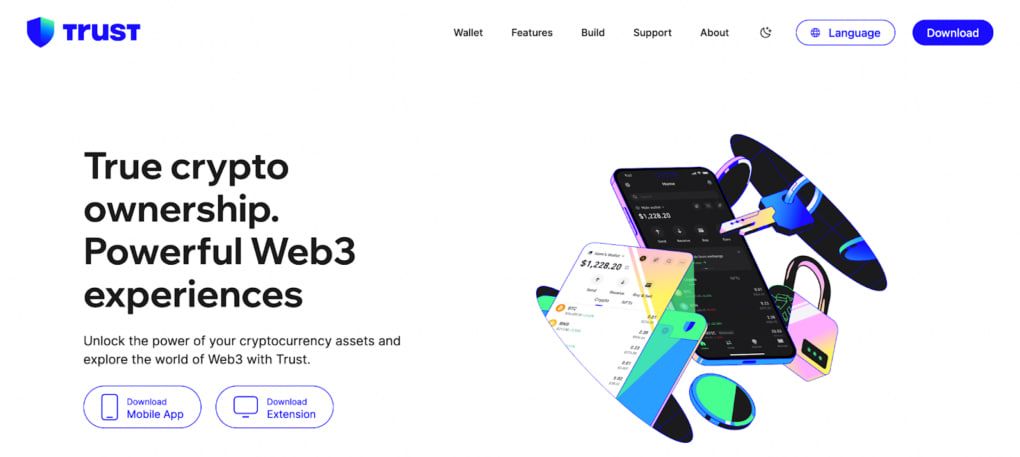
Launched in 2017 and later acquired by Binance, Trust Wallet is the official DeFi wallet of the Binance exchange. It supports more than 100 blockchain networks, including Ethereum, BNB Chain, Polygon, and Solana. Trust Wallet makes it easy to add supported networks with just a tap.
Key features of Trust Wallet include:
- DApp Browser: Integrated for direct access to various decentralized applications.
- “Discovery” Page: Showcases featured apps and crypto campaigns.
- Fiat Gateway: Allows for buying and selling through third-party providers.
- Token Staking: Supports staking for multiple cryptocurrencies.
- Cross-Chain Swaps: Enables token swapping across different blockchain networks.
- Encrypted Cloud Backup: Secures wallet backups through cloud services.
Trust Wallet also offers a governance token, TWT, which provides holders with voting rights on wallet development and discounts on services. Its compatibility across numerous platforms helps illustrate what is DeFi wallet and how it integrates with various decentralized finance ecosystems.
| Wallet Name | Trust Wallet |
| Founded By | Maxim Rasputin |
| Launched In | 2017 |
| Type | Software wallet |
| Supported Networks | Ethereum, BNB Chain, Tron, and 100+ others |
| Platforms | Browser extension (Chrome, Brave, Opera, Edge), Mobile (iOS, Android) |
| Standout Features | Binance backing, governance token |
4.4. Phantom
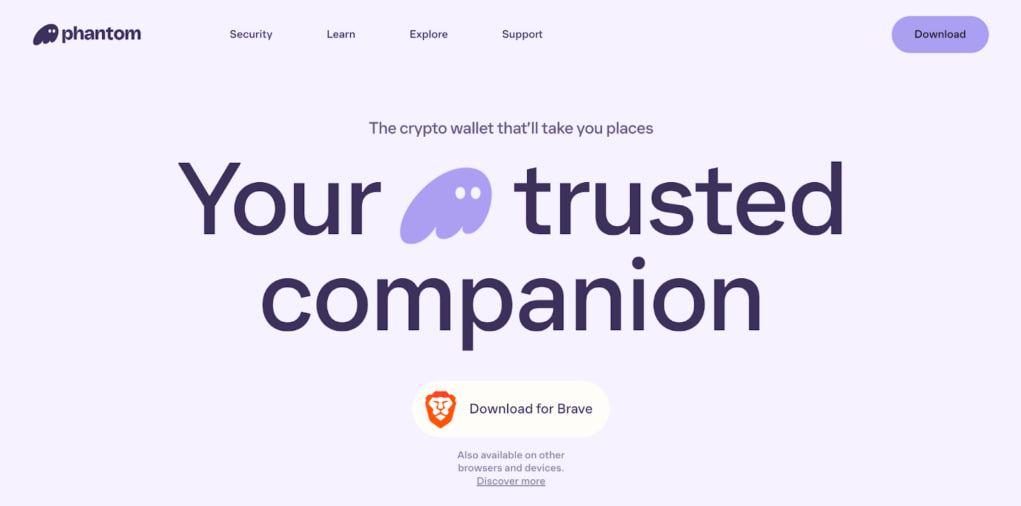
Phantom was introduced in 2021 as a multi-chain wallet supporting Solana, Ethereum, Polygon, and Bitcoin. Renowned for its sleek and intuitive interface, Phantom aims to simplify the DeFi experience for all users while offering comprehensive support for Solana’s ecosystem.
Phantom’s primary features include:
- DApp Browser: Facilitates seamless access to decentralized applications.
- Fiat Gateways: Allows for crypto purchases via third-party providers.
- Cross-Chain Swaps: Offers built-in token swapping across supported networks.
- Solana Staking: Supports staking of Solana tokens directly from the wallet.
- NFT Management: Enables users to store, send, and receive NFTs.
Supported by prominent investors like a16z, Paradigm, and Solana Ventures, Phantom showcases the multi-chain capabilities of a DeFi wallet in a user-friendly and accessible way. Users can download Phantom as either a browser extension or a mobile app available on iOS and Android.
| Wallet Name | Phantom |
| Founded By | Brandon Millman, Francesco Agosti, Chris Kalani |
| Launched In | 2021 |
| Type | Software wallet |
| Supported Networks | Solana, Ethereum, Polygon, Bitcoin |
| Platforms | Browser extension (Chrome, Brave, Firefox, Edge), Mobile (iOS, Android) |
| Standout Features | User-friendly interface, optimized for Solana |
4.5. Ledger
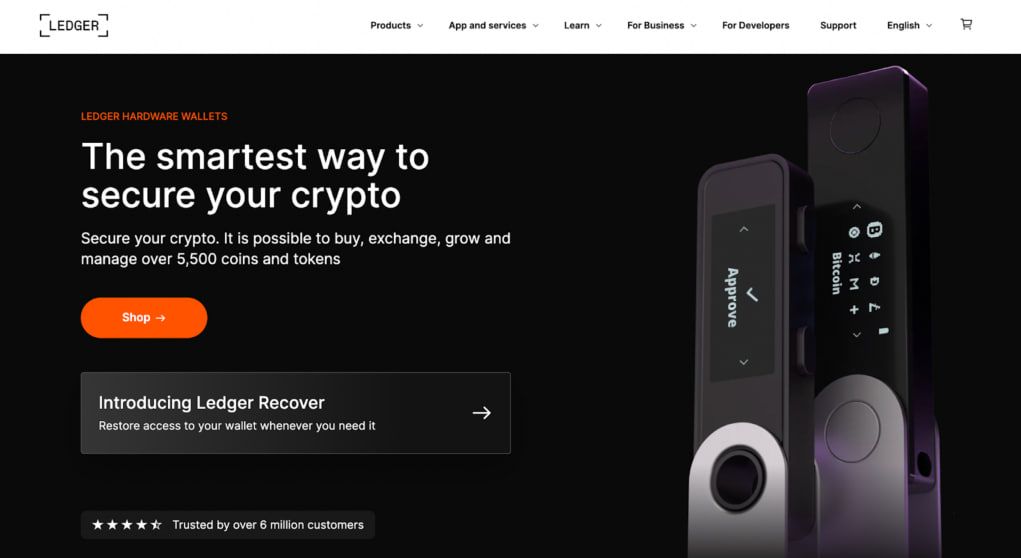
Ledger is a renowned hardware wallet brand founded in 2014, offering offline storage for private keys to minimize hacking risks. As a major player in the Ethereum ecosystem, it’s considered a secure option for users who want to understand what is DeFi wallet and how hardware solutions fit in.
The brand provides three models: the Nano S Plus, the mobile-friendly Nano X with Bluetooth, and the advanced Ledger Stax, featuring an E Ink® touchscreen. All models use certified secure chips (CC EAL5+ or above) and support over 5,500 cryptocurrencies and NFTs.
Ledger wallets can pair with the Ledger Live app, offering:
- Direct connection to DeFi apps.
- Portfolio tracking.
- Buying and selling crypto via third parties.
- Staking.
- NFT management.
The Ledger Live is accessible on multiple platforms, including Windows, macOS, Linux, iOS, and Android, ensuring security by requiring transaction verification through the physical wallet. This type of wallet provides an ideal way to explore what is DeFi wallet and how hardware solutions can be incorporated.
Additionally, Ledger devices are compatible with a range of software wallets such as Metamask, Phantom, Zerion, Trust Wallet, and others.
| Wallet Name | Ledger |
| Founded By | David Balland, Joel Pobeda, Thomas France, Eric Larchevêque, Nicolas Bacca |
| Launched In | 2014 |
| Type | Hardware wallet |
| Supported Networks | Ethereum, Bitcoin, and over 1,800 other assets |
| Platforms | Physical device, with integrations for software wallets |
| Standout Features | Top-level security, DeFi integrations through software wallets |
These wallets provide diverse features tailored to various user needs, showcasing the many facets of decentralized finance. Understanding what is DeFi wallet through these examples helps you make the right choice for managing your digital assets securely and efficiently.
5. How to Choose the Right DeFi Wallet?
Choosing the right DeFi wallet is crucial for securely managing your digital assets and maximizing your experience in the decentralized finance ecosystem. With so many options available, it’s important to understand what is DeFi wallet and how its features align with your needs. Below are key factors to consider when selecting a DeFi wallet.
5.1. Wallet Type: Software vs. Hardware
DeFi wallets come in two main types: software and hardware. Understanding what is DeFi wallet helps in deciding between the convenience of software wallets and the security of hardware wallets.
- Software wallets (hot wallets) are accessible via mobile apps or browser extensions and provide convenient access to your funds. They’re ideal for users who need frequent access to decentralized applications (DApps) and real-time asset management.
- Hardware wallets (cold wallets), on the other hand, store private keys offline, making them more secure but less convenient for daily use. They are recommended for long-term storage of significant assets due to their enhanced security features.
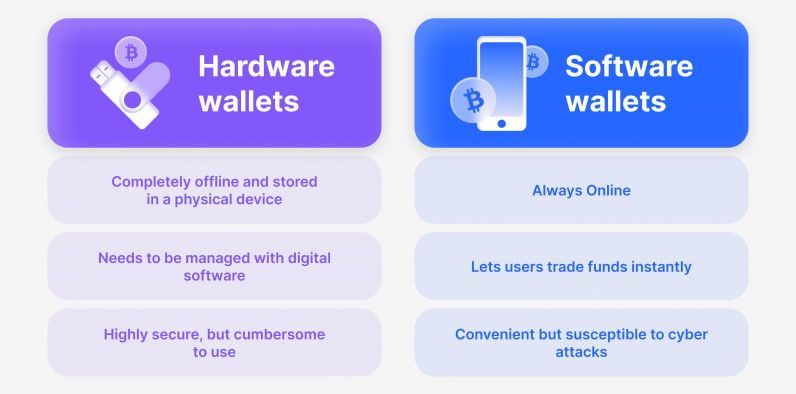
5.2. Supported Blockchain Networks
Make sure the DeFi wallet you choose supports the blockchain networks and assets you plan to use. Some wallets are limited to Ethereum and Ethereum-based tokens, while others support multiple networks like BNB Chain, Solana, or Polygon. If you diversify your assets across different blockchains, choose a wallet that accommodates all your needs in one place.
5.3. User Interface and Experience
A user-friendly interface is crucial, especially if you are new to DeFi. Look for a wallet that simplifies transactions, provides easy access to DApps, and offers clear navigation. Some wallets even offer “simple modes” for beginners, making it easier to get started in the complex DeFi space.

5.4. Security Features
When deciding what is DeFi wallet best suited for you, security is a top priority. Consider wallets that offer additional security layers, such as encryption, two-factor authentication (2FA), or seed phrase backup. Hardware wallets like Ledger or Trezor generally offer the highest security, but certain software wallets are also equipped with strong encryption and backup features to protect your assets.
5.5. Compatibility with DApps and Integrations
Your DeFi wallet should easily integrate with the decentralized applications (DApps) you plan to use. Wallets like MetaMask or Coinbase Wallet offer built-in DApp browsers, allowing you to connect seamlessly with DeFi services like staking, lending, or yield farming. Compatibility with popular DApps and DeFi protocols is essential for smooth interaction in the blockchain ecosystem.
When determining what is DeFi wallet right for you, consider factors like wallet type, network compatibility, security features, and user experience. A well-chosen DeFi wallet can significantly enhance your control over your assets and simplify your DeFi journey.
Conclusion
In summary, learning what is DeFi wallet is essential for navigating the decentralized finance landscape. A DeFi wallet gives you control over your assets, enhanced security, and access to a wide range of blockchain applications. By knowing what is DeFi wallet and carefully choosing one, you can fully harness the benefits of DeFi and take control of your financial freedom.
For more in-depth information and the latest trends in the crypto world, continue to check out for more crypto insights from FMCPAY!

